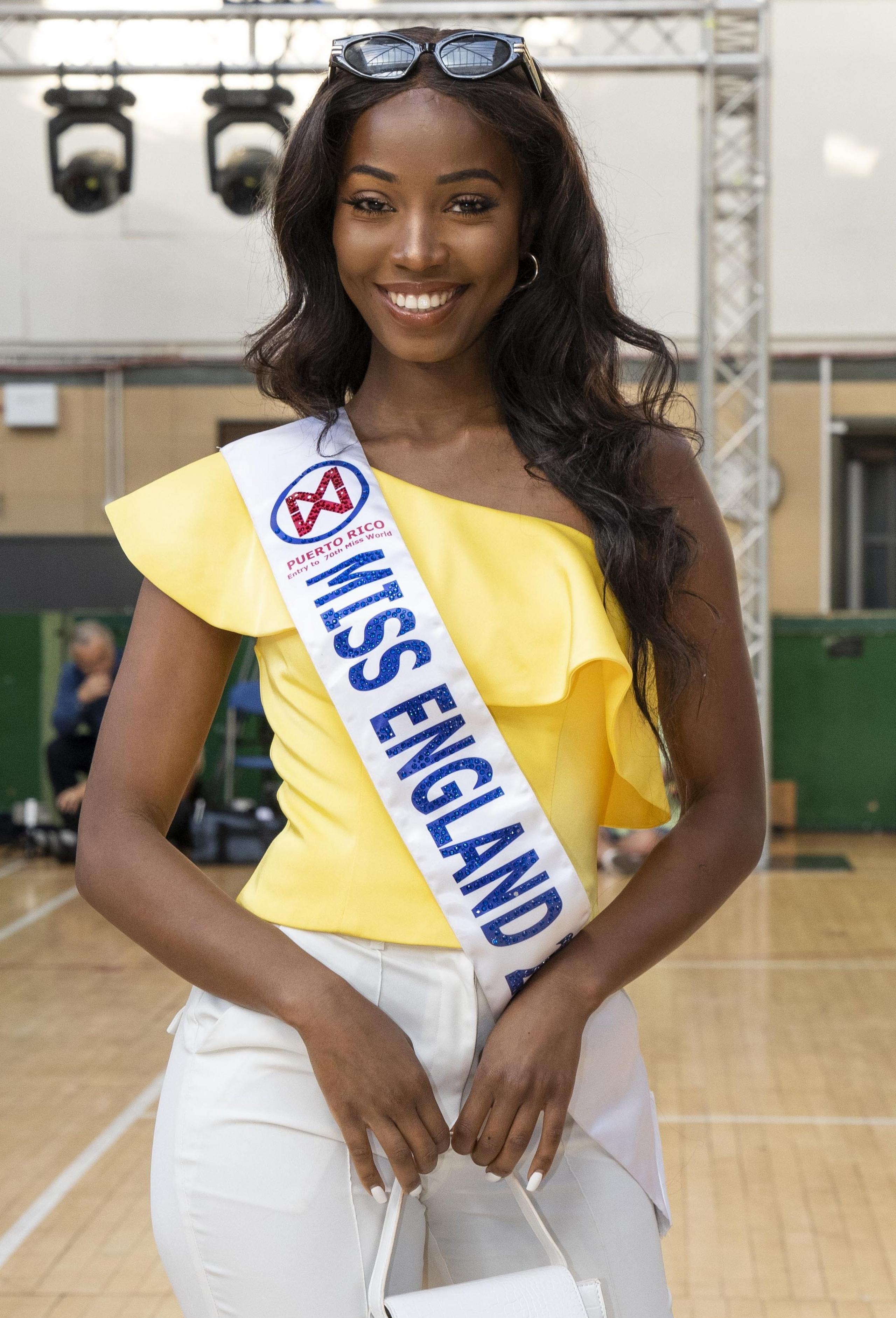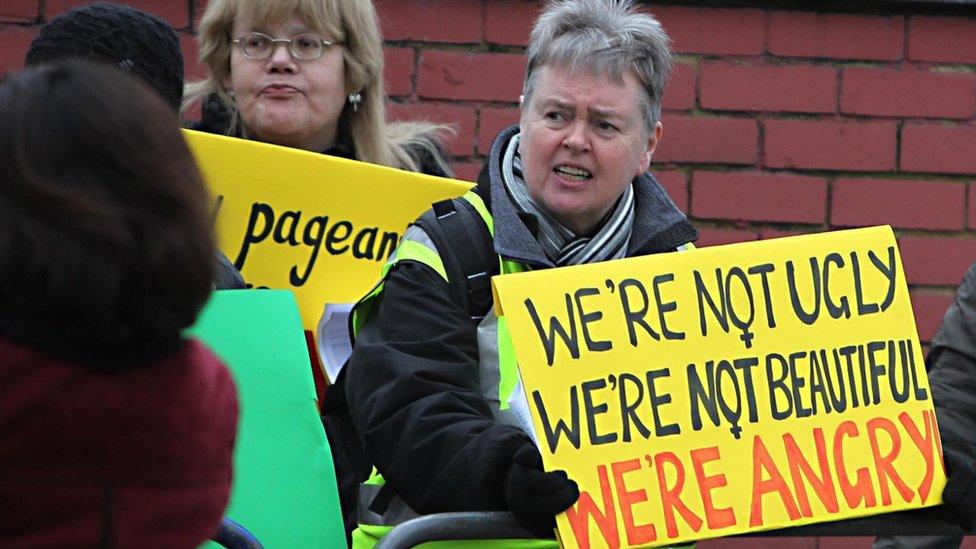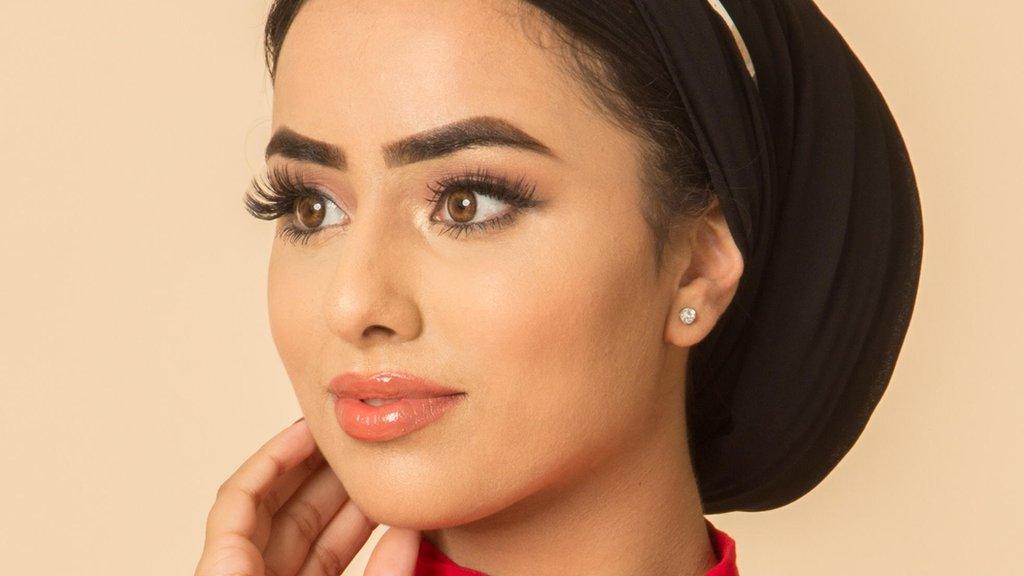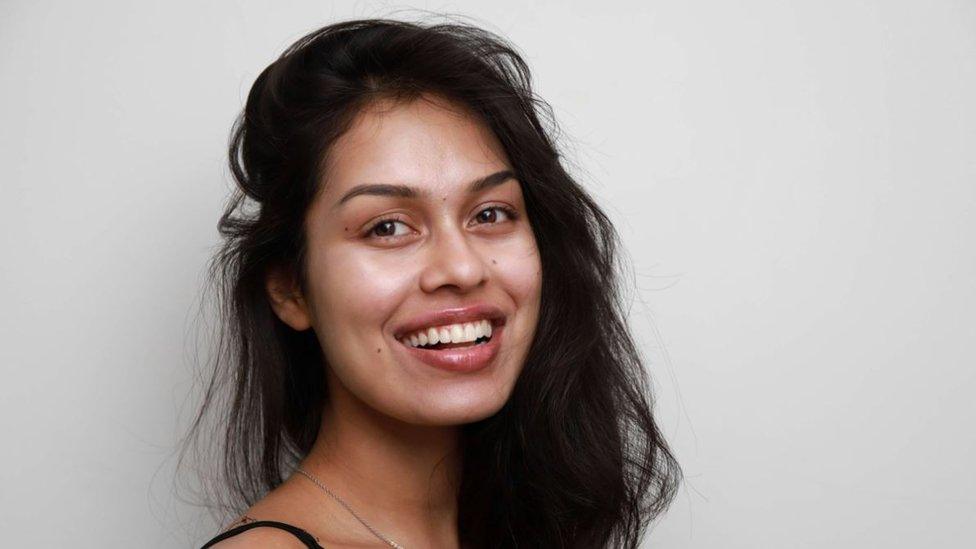Melisa Raouf: Going make-up free in the Miss England final
- Published

Beauty pageants can have a reputation as glitzy, glamorous events where young women are cloaked in a thick layer of make-up.
The first part may still be true, but Melisa Raouf is on a mission to change the second.
The 20-year-old student will be the first person to compete in the final of the Miss England contest without make-up in its nearly 100-year history, in a bid to show girls they don't have to wear it to feel beautiful.
Ms Raouf, from south London, won a special "bare-face" round of the competition last week, cementing her place in the final between 40 contestants on 17 October.
But while previous winners of this round have returned to wearing make-up for the final, she will not.
And if she wins, she says she will will leave it off for the Miss World competition, hoping to "inspire the world".
"I wanted to prove we have a choice," she tells BBC News. "We don't have to wear make-up if we don't want to."
Like many of her peers, Ms Raouf began wearing make-up in her teens.
She says she was "significantly insecure", and found comparing herself to the "unrealistic standard of beauty" shown on social media had a negative impact on her mental health.

Rehema Muthamia, from Essex, is the current Miss England after being crowned last year

"I never felt comfortable in who I was, never felt comfortable in my skin," Ms Raouf says.
But as she got older she gained confidence - and she thinks taking part in the beauty pageant, while "very daunting" at the time, has increased this.
"I just thought, I'm doing this for all of us."
Since last week's bare-face round, Ms Raouf says she has been "overwhelmed" by positive messages on social media.
"I've heard from girls of all ages, from women in their 40s and 50s, saying they feel more comfortable in their own skin," she says.
Ms Raouf does not object to wearing make-up in general, and will still do so on other occasions. She wore some skin products allowed by the bare-face round, including toner, moisturiser and lip balm.
"I appreciate make-up as a form of art and creativity," she says.
"It's ok to wear make up to enhance your looks or for special occasions, but it shouldn't define us. It's about the choice.
"I wanted to prove we don't have to wear make-up if we don't want to."
Ms Raouf wants girls to place more value on their "inner beauty" rather than comparing themselves to others.
"When you wear that amount of make-up you're just concealing yourself. Remove all those layers and you'll see who you truly are," she adds.
Miss England, which is owned by the Miss World competition, is one of four beauty pageants from each of the UK nations which sends a contestant to the global event each year.
Miss World was first organised in 1951 in the UK by television host Eric Morley. His widow, Julia Morley, became CEO after his death in 2000.
The franchise has faced some criticism over claims it objectifies women, most famously in 1970 when members of the Women's Liberation Movement used flour to disrupt the Miss World final at London's Royal Albert Hall.
There were also protests, from various groups including the London Feminist Network and UK Feminista, when the competition final was held in London in 2011 and 2014.

The global Miss World event has seen protests throughout its history
Some of the rules of entry for the competition have not been changed since 1951.
Miss England hopefuls cannot be older than 27 in their year of entry, and are not allowed to be married or have given birth to children.
In 2018, Veronika Didusenko, who had been crowned Miss Ukraine, said the rules needed to change after she had her title taken away for being a mother.
Julia Morley later said it was difficult to alter entry rules as local competitions took place in so many different countries.
But for Ms Raouf, the events are a "positive and inspiring" influence.
"The contestants use their platform to do something good in the world."
Ms Raouf, who is in the second year of her politics degree at King's College London, wants to enter diplomacy after her studies.
She says the women competing alongside her have a more varied range of interests and backgrounds than is often portrayed.
"Everyone has their own story," she says.
Related topics
- Published5 September 2018

- Published9 August 2022

- Published25 June 2019
